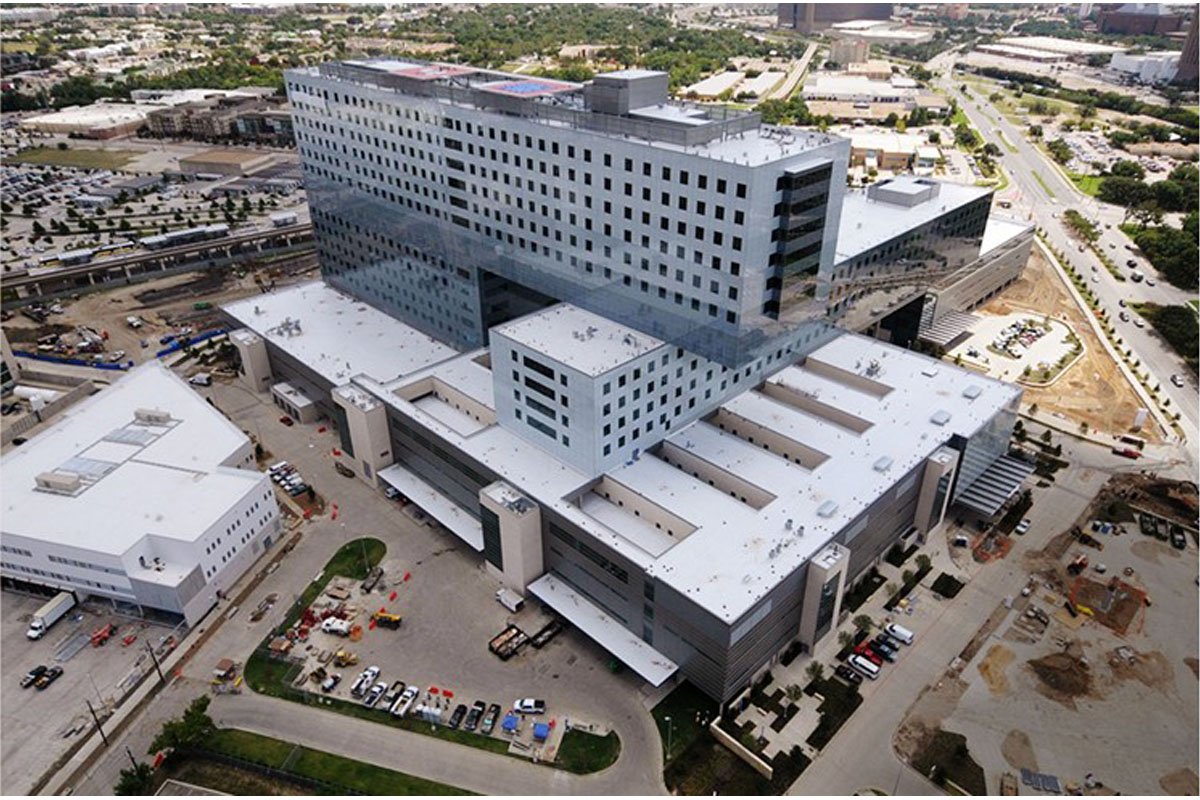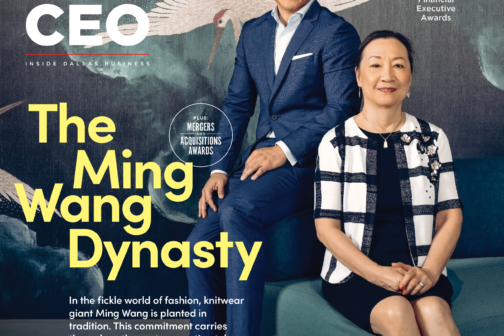As the COVID-19 cases mount in Dallas County and across the state, healthcare providers have the task of following up with those who have been discharged from the hospital. Even though the patients are technically “recovered” from the disease, that doesn’t mean they are symptom-free.
To help track and treat these patients, Parkland hospital recently began a follow-up clinic for those who have been discharged. Dr. Monal Shah is a senior vice president at Parkland Health and Hospital System, Chief Physician Advisor, and the medical director of the COVID-19 follow up clinic at Parkland. The clinic has several purposes, but its genesis comes from trying to keep formerly COVID-19 positive patients away from other populations, primarily because experts know so little about immunity.
In a part of the COVID-19 unit in Parkland, the clinic sees those who were formerly COVID-19 positive, monitored, and treated for lagging symptoms. Patients are referred to the clinic from hospital discharges, and the clinic does tele-visits and in-person appointments, depending on the need.
Shah says the recovered patients are still suffering in several ways, and reflect research from Italy about patients who have recovered from COVID-19. In that paper, published in the Journal of the American Medical Association, only 13 percent of patients were free of symptoms 60 days after their first symptom. Around 85 percent of people in the study had at least one symptom, with 55 percent having three or more remaining symptoms. Though there was no fever or acute illness in these patients, 41 percent said they had a reduced quality of life because of the disease. Fatigue, shortness of breath, joint pain, and chest pain were the most common remaining symptoms.
Shah says the clinic is also concerned with blood clotting and liver function. Many of the patients are immunocompromised or have other conditions that made them vulnerable to the disease in the first place, complicating their treatment. Strokes, heart attacks, and hair loss that accompany stress are other symptoms the clinic has seen, in addition to a growing number of pregnant women who were COVID-19 positive.
Amongst the younger patients they have seen with COVID-19, he says they have witnessed multi-system inflammatory syndrome, gastrointestinal issues, skin rashes, and irregular heartbeats.
In addition to physical ailments, Shah says the psychological damage the disease is also substantial. There is a stigma around the illness, and often patients are unable to return to work or socialize if they were previously positive. If a family member is elderly or immunocompromised, the patient may be isolated from their family. With patients stuck at home or alone, anxiety and depression often accompany the disease’s physical symptoms. Shah says the team is looking to develop support groups for “The goal with this clinic is to allow people to transition to a regular and healthy life.”
In addition to helping patients recover from coronavirus, Shah says that following the patients will provide research opportunities. They have already submitted a research proposal for funding to study the patients on their road to recovery. “We are still early on, and more research needs to be done,” he says.
Though the clinic just opened weeks ago and has registered a couple dozen patients, they are expanding protocols and are looking to serve greater numbers. They are looking to begin seeing patients discharged from the emergency department and expanding into obstetrics patients. Though they are seeing only former Parkland patients right now, Shah says the clinic is open to anyone.
Though much of the concern has been with the short term impact of COVID-19 on patients and the health system in general, Shah says lasting effects of the disease are also a significant concern. “We are recognizing that the long-term effects are real, which is another reason that we take this disease seriously,” he says.





